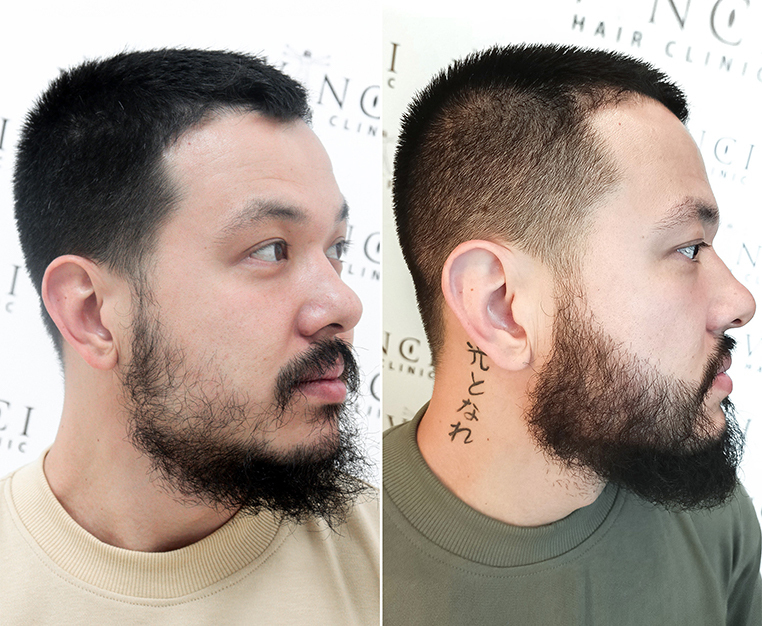Recently, an article on nytimes.com caught the eye of many people interested in the subject of hair restoration. The article was about minoxidil and its effectiveness in treating people experiencing hair loss. This came as news to many hair loss sufferers. The article triggered a lot of comments on social media, not to mention an assortment of follow-up articles focusing on this new wonder drug.
Except, of course, minoxidil isn’t ‘news’ at all. It’s been around for years and has been one of the go-to drugs of hair restoration practitioners all over the world. This article is going to take a closer look at this drug that has been hiding in plain sight all these years. Keep reading to find out more!
New Kid in Town?
When it comes to hair restoration medication, minoxidil is certainly not the new kid in town. It has been available as a topical hair loss treatment since the 1980s, but even before that, it was taken orally as cardiac medication. People taking the drug noticed that hair growth was a side effect of taking it in high doses. At first, doctors were concerned that the health risks of taking the drug for hair regrowth outweighed its benefits, but over the years these fears eased as a lower dose of the medication was deemed to be safe. If minoxidil has emerged as anything in recent years, it’s not as a new drug but as a safe one.
Off Label
It can’t be denied, however, that minoxidil still has a low profile compared with other medications, mainly because it hasn’t been advertised as widely as other drugs. This is because it has been used as an ‘off-label’ treatment for many forms of hair loss. Off-label simply means that a drug is being used to treat a condition that is outside the terms of its licence. So, while the US Food and Drug Administration (FDA) approved the use of minoxidil for the treatment of androgenetic alopecia in 1988, the drug has been used since then to treat many other kinds of alopecia too. It’s a similar story in the UK.
Using medicines off-label is common practice, particularly when it comes to older medicines that have proved themselves over the years to be safe and effective treatments for conditions outside the terms of their licence. Once they’ve reached this point, however, it stops being a financially attractive proposition for drug companies to fund the randomised controlled trials necessary to expand the terms of their licence. Off-label medicines are safe and effective, but the lack of drug company trials means that there isn’t scientific data to support this.
Highly Effective
The lack of clinical trials also means that how minoxidil actually works is still a bit of a mystery. The most popular explanation is that it has a vascular effect, thus increasing the flow of nutrients to the hair follicles. It could also be that it influences the hair cycle in some way. What cannot be denied is that minoxidil is highly effective across all different types of hair loss.
That doesn’t mean to say that minoxidil should be used by everyone. Like all medications, it comes with a few health warnings. Some users have reported feeling lightheaded or experienced facial hair growth, the latter being a particularly unwelcome development for females. All in all, however, the reported side effects of the medication stand comparison with other drugs.
Early Diagnosis
As with most hair restoration treatments, the sooner you start using minoxidil the better. Unlike medications whose efficacy is primarily based around retaining hair and stopping further hair loss, minoxidil improves the quality of existing hair while stimulating new growth. Start it before you have lost too much hair, therefore, and you will see results even before regrowth kicks in.
The effects of minoxidil are seen after about six months. If you decide to use it, you will need to keep taking it. Discontinue using it and its positive effects will stop. This makes it the ideal drug for short-term, temporary hair loss, as it can give your locks a huge boost until your hair starts to regrow naturally. It’s still an effective drug for permanent hair loss if you can commit to using it.
Conclusion
These days, baldness is treatable, and minoxidil is just one of a range of treatment options available to those experiencing hair loss. Each case of hair loss is different, so don’t try diagnosing your own problem or buying a random hair potion off the internet. Speak to an expert and get the appropriate treatment for your hair loss or thinning.
Vinci Hair Clinic has more than its fair share of experts. We’re one of the largest hair restoration companies in the world with a network of clinics across the globe. We’re offering a free, no-obligation consultation to all our new clients. Get in touch and book your appointment today – we look forward to welcoming you!


